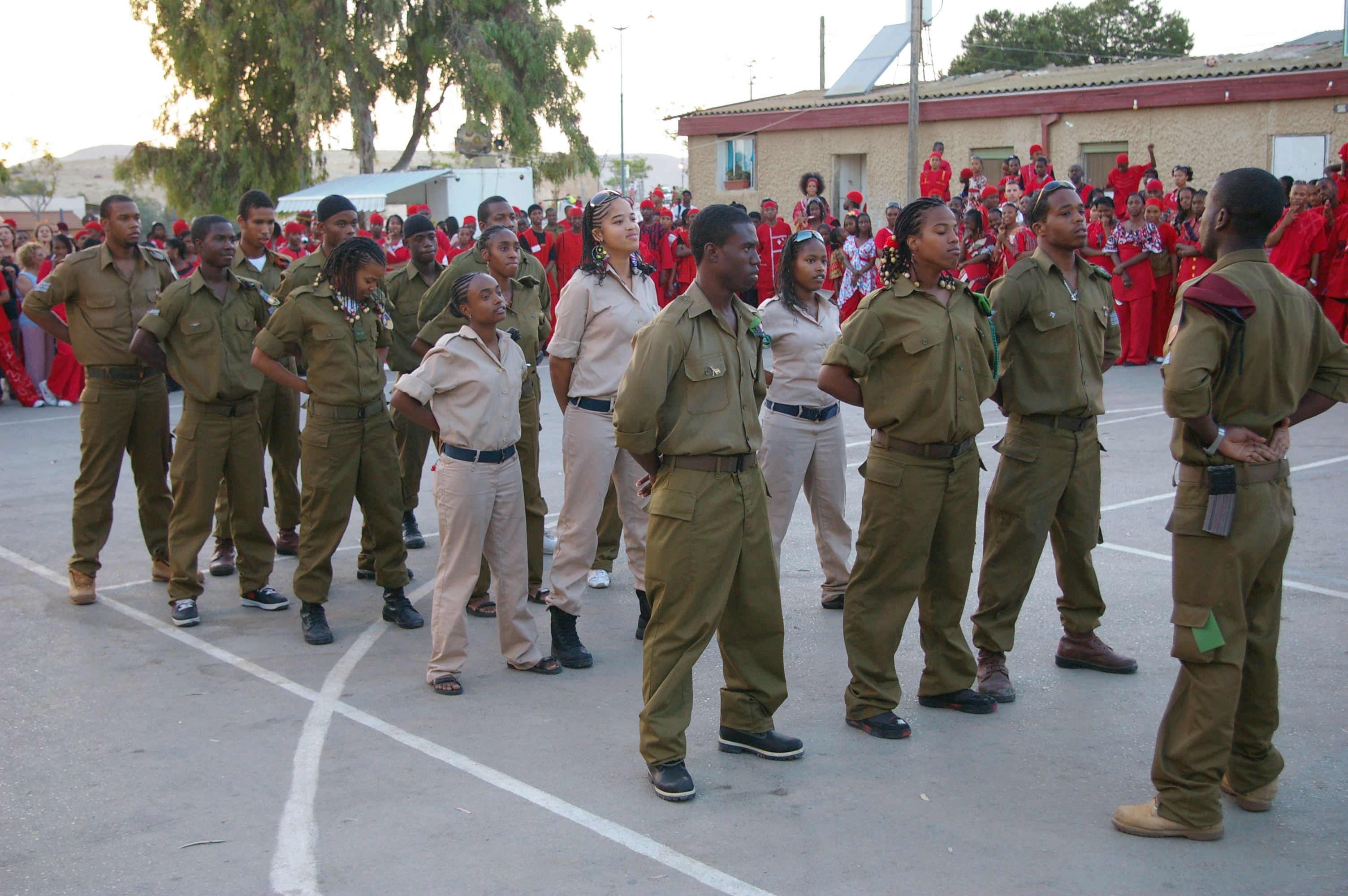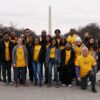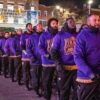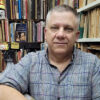In his new book on the African Hebrew Israelites, the anthropologist John Jackson, Jr. writes that the community’s youth serve in the Israel Defense Forces voluntarily, when in fact they are obligated to do so. I point out the error in my review in the Israeli newspaper Haaretz but want to elaborate on the issue of the Hebrews’ military service because there seems to be a lot of confusion about it—in Jackson’s book, on the Internet, and even within the community itself.
According to Israel’s Defense Service Law, military service is compulsory for both citizens and permanent residents. Some groups of Israelis are exempt from IDF service, including non-Druze Arabs (though they can volunteer, and many Bedouins do), married women (ahem, Bar Refaeli), pregnant women and mothers, and people with physical or psychological problems. (Full-time yeshiva students were exempt until the “Tal Law” allowing them to defer their service was ruled unconstitutional by the Israeli Supreme Court and allowed to expire in August 2012.) But the Hebrews, who received permanent residency status in 2003, are not exempt.
There is conflicting information online about the Hebrews’ participation in the IDF. In an article about the induction of the first Hebrew soldier, Oriyahu Butler, Haaretz erroneously reported that the Hebrews are not obligated to enlist because they are “residents,” not citizens, and “residency…does not carry mandatory military service.” (The article failed to note that the Hebrews are permanent residents, as opposed to temporary residents; the latter can volunteer for the army but are not required to enlist.) And Yediot Ahronoth quoted Oriyahu as saying: “I know that for permanent residents like me, people who aren’t citizens, enlisting is optional, but for me and my friends enlisting is considered mandatory.” Either Oriyahu was confused or the reporter misquoted him. In fact, as at least one reporter correctly noted, Oriyahu’s mother is an Israeli Jew, which means he is Jewish and presumably would have been drafted at age 18 whether the rest of the community had received permanent residency or not.
While fact-checking Jackson’s book, I called Avraham Poraz, the former interior minister who upgraded the Hebrews’ status to permanent residency. Now a lawyer in private practice, Poraz confirmed that permanent residents must serve in the IDF and that the Hebrews understood this and did not make a fuss about it. “We wanted it, they wanted it, it’s good for everybody,” Poraz said.
Sar Ahdeev, who serves as a community liaison to the IDF, told me that the leaders readily accepted the responsibility of military service, viewing it as their “debt to society.” When I asked him how they reconcile the IDF service of the youth with their commitments to non-violence and physical immortality, he said: “We’re not naïve about being in the military, and being in a state of war, that possibly there will be fatalities. But we explain [to the soldiers] that this is tied in to their being aligned with their purpose of being a spiritual element in the army.” Atur Avraham, Oriyahu’s father, put it this way: “We definitely don’t believe in no fighting or no killing, but we can’t sit back and allow our brothers and sisters in the country to send their sons and daughters out there, sacrifice them on behalf of their nation, and we don’t do anything.”
And so, I found it strange that Prince Asiel, the community’s former international ambassador, would criticize spiritual leader Ben Ammi Ben Israel for “allowing” the youth to serve in the military, as he appears to do in Jackson’s book. On page 262, Jackson writes: “And why, Asiel asks, would Ben Ammi allow the Kingdom’s youth to enlist in the Israeli Army? The decision should have been brought to saints beforehand, he adds. Instead, he contends Ammi [sic] made that call on his own.” Surely Asiel would have known that military service was compulsory for the Hebrews and that it wasn’t Ben Ammi’s call to make. What’s going on here?
It turns out that Asiel did know this, and that Jackson misrepresented remarks Asiel made in October 2011 on a live, public-access television show in Chicago. Asiel appeared on the show, Muhammad & Friends, following his expulsion from the community, ostensibly over the misappropriation of funds. (I watched the show online after some of my Hebrew friends circulated a link on Facebook.) In response to a viewer’s question about the Hebrews’ IDF service, Asiel replied:
Once we became what is called permanent residents, then the children were obligated as permanent residents to serve in the army. But they didn’t have to serve in the military aspect of the army. But when they had that option, the leadership under Ben Ammi made a decision that that’s what they should do. Now, that was not brought to the people for a full, open discussion, because we went in there saying that is something that we would not do. There’s no way that we gonna fight no Palestinians about no issue about land. And here we are trying to talk about land 40 years later that we don’t have, and we talking to a people that want land who been there for the last 700 or 800 years on some land that they’re [unintelligible]. It was a contradiction of our purpose and our being. We went there as the peacemakers. Blessed are the peacemakers, for they shall be called the sons of God.Clearly, Asiel was opposed not to the youth being drafted into the army but to their fighting in combat units. In August 2005, 10 young men from the community joined a Nahal infantry brigade so they could gain agricultural skills while completing their service. Many of them saw action during the 2006 Gaza war. I suspect it was the decision to allow these youth to join Nahal that Asiel felt should have been “brought to the people.” (I reached out to him for clarification, but he’s been rather busy of late.) Ben Ammi has never placed restrictions on the kinds of units the youth can serve in, though some parents try to discourage their children from doing combat. It’s important for me to say that I don’t think Jackson intentionally misrepresented Asiel’s position or the nature of the Hebrews’ IDF service. But these mistakes help to illustrate the limitations of his ethnographic approach, the “thinness” of his description in some places. Now, I want to briefly address the Hebrews’ position vis-à-vis the Israeli-Palestinian conflict. Jackson writes: “They are committed to the integrity of the Israeli state…but they also identified (in many different ways) with the Palestinian cause.” On what is he basing this assessment? I have interviewed dozens of Hebrew soldiers during and after their service. Most expressed neither jingoistic loyalty to Israel nor sympathy for the Palestinians, but rather something closer to ambivalence. One soldier, who served in a combat unit, told me: “I fight for what’s right. Because the blood of Judah runs through my veins, then I’m gonna fight for this land to the bitter end. I don’t like to say I’m on the Israeli side. I stand for what’s right.” And Ahdeev, the liaison to the IDF, said: “We identify with the state and with the Biblical covenant that this land, from the Nile to the Euphrates, was given unto the seed of Abraham. We don’t see any other national entity having the spiritual mandate over this land, so it’s not like we’re way out of the ball park in regards to our sons and daughters being in the army.” For better or worse, that’s about as far as you can get from identifying with the Palestinians.




